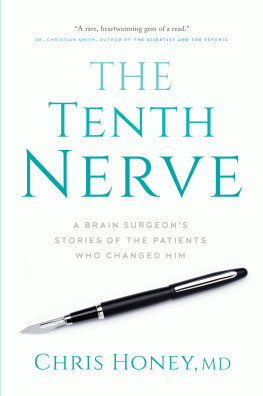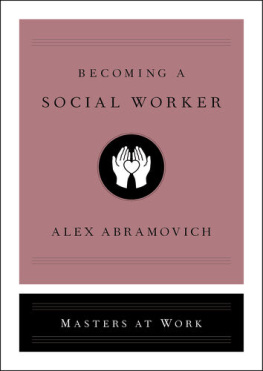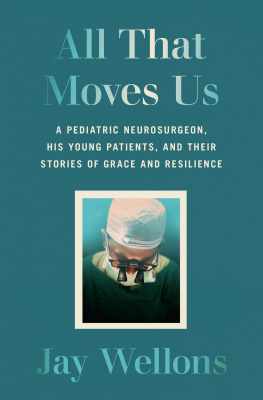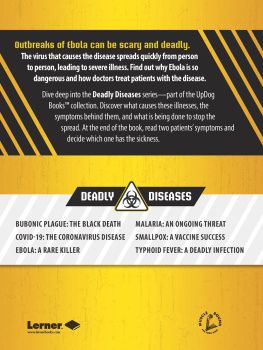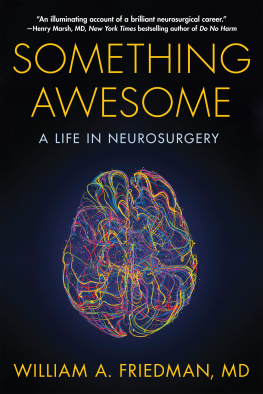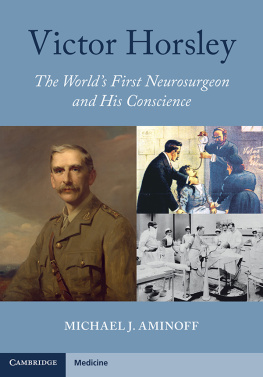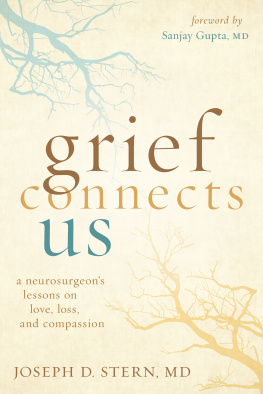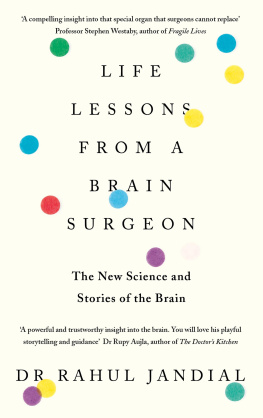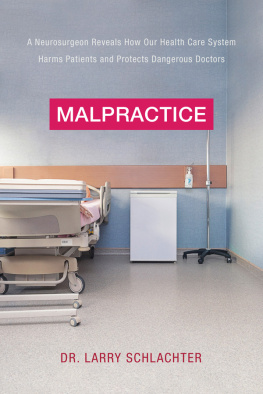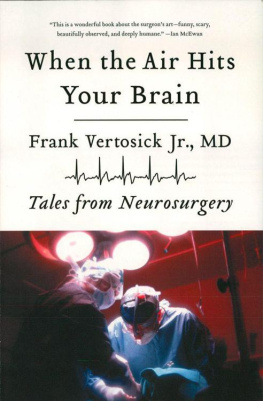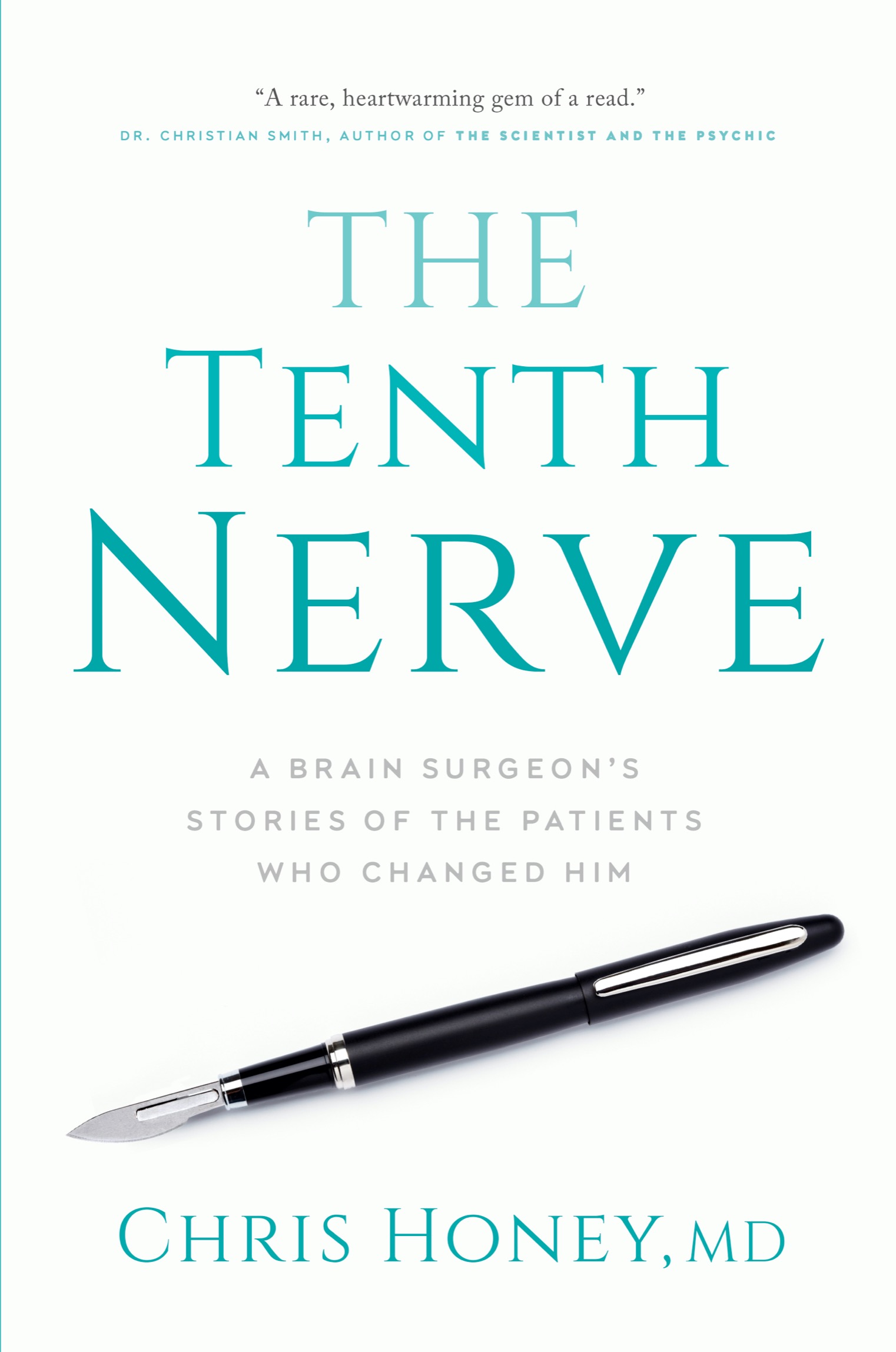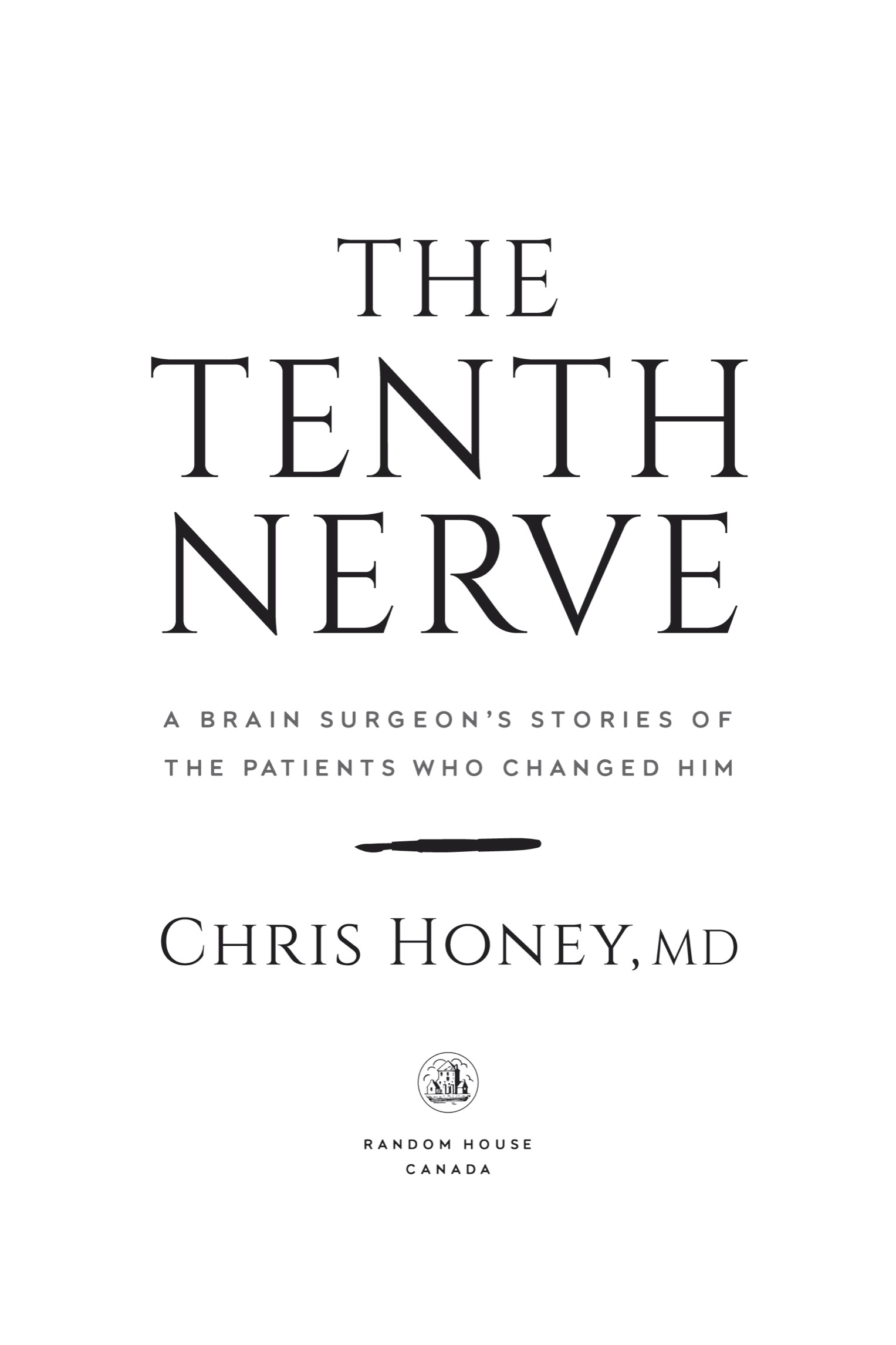All rights reserved under International and Pan-American Copyright Conventions. No part of this book may be reproduced in any form or by any electronic or mechanical means, including information storage and retrieval systems, without permission in writing from the publisher, except by a reviewer, who may quote brief passages in a review. Published in 2021 by Random House Canada, a division of Penguin Random House Canada Limited, Toronto. Distributed in Canada by Penguin Random House Canada Limited, Toronto.
Random House Canada and colophon are registered trademarks.
The author has changed the names of some of the individuals in this book, and in some cases modified identifying details in order to preserve anonymity.
Title: The tenth nerve : a brain surgeons stories of the patients who changed him / Christopher Honey.
Names: Honey, Christopher, author.
Identifiers: Canadiana (print) 20210256362 | Canadiana (ebook) 20210256443 | ISBN 9781039001169 (hardcover) | ISBN 9781039001176 (EPUB)
Subjects: LCSH: Honey, Christopher. | LCSH: NeurosurgeonsCanadaBiography. | LCSH: Nervous systemSurgeryPatientsAnecdotes. | LCSH: Nervous systemSurgeryAnecdotes. | LCGFT: Autobiographies.
Image credits: (scalpel) ADragan / Getty Images; (fountain pen) soo hee kim / Shutterstock
F OREWORD
For most people, neurosurgery is a mysterious, high-stakes professionthats part of the reason I was drawn to it as a curious child and, eventually, as a medical intern and doctoral student. Even after centuries of medical exploration, the brain, lying hidden and protected beneath the skull, is rarely seen and only superficially understood. It is the precious organ responsible for our thoughts, movements and personalityto operate on the brain invites the danger of changing the very essence of the patient. Not a casual endeavour.
After practising neurosurgery for more than twenty-five years, I wrote this book to show how a brain surgeon operatesliterallyand to share the human stories behind two significant discoveries by my team at Vancouver General Hospital of previously unrecognized but likely ancient diseases. In recounting these events, I realized that some of my patients had profoundly changed who I was.
Here, then, is a book about discoveriesboth medical discoveries that I have provided my patients and personal discoveries that my patients have prompted in me. These are the stories of seven brave individuals whose close encounters changed me into a better person and surgeon. The scalpel can only go so deep, and technical skill can only take you so far. Real understanding of an illness requires listening and genuine care. The Tenth Nerve is a book about curiosity, the wonder of the human brain, and the courage of a few remarkable patients.
In the 1500s, when medical knowledge and treatments were limited, doctors provided more emotional support than medical cure. The French surgeon Ambroise Par (15101590) famously said, The physicians duty is to cure occasionally, relieve often, console always. Nowadays, these duties have been reversed in importance. Doctors are expected to cure always and leave the consoling to the nurses.
On the first day of medical school, the cadavers have their faces and hands wrapped in white linen to limit any emotional engagement for the would-be physicians. This practice enhances the ability of the students to dispassionately cut into the bodies and learn their anatomy. By graduation four years later, every student knows doctors should never become emotionally connected to their patients.
We diagnose, we treat, we leave.
If you are foolish enough to become emotionally involved with your patients, they will take you to euphoric highs and suicidal lows. Every day, a doctor kills themself in the United States. In Canada, suicide is the only cause of mortality that is higher among physicians than the general public. Many factors may explain this epidemic of medical suicide, but a key one is the emotional strain of sharing a patients fears, frustrations and failures. Simply put, riding a roller coaster of compassion entails a very real personal risk to the physician.
The current model of medicine therefore encourages a personal detachment between doctor and patient. That dispassionate approach, coupled with the time pressures of the business of medicine, often leaves the patient feeling that they are just a disease and not a person. The truth, of course, is that the disease and the patient cannot be separated. As Sir William Osler said, The good physician treats the disease; the great physician treats the patient who has the disease. The superb family doctor knows this, and every medical decision they make is framed by how it will affect the patient and their family.
The virtuoso surgeon, however, need only know how to get that last piece of tumour off the blood vessel without tearing it. Surgeons are expected to be bold, confident and technically gifted. Sometimes wrong but never in doubt. In our weekly neurosurgical morbidity and mortality rounds, cases are discussed in an effort to prevent medical errors from reoccurring. The chief resident begins, This forty-nine-year-old brain tumour had a craniotomy with gross total resection last Monday and a few days later developed seizures The fact that the patients wife thought he would die and will always remember him shaking uncontrollably is of no relevance. We discuss only why the nameless, forty-nine-year-old brain tumour developed his seizures and whether we could have prevented it.
Emotions, we are taught, are an impediment to the best practice of surgery.
But despite all our training to be detached and rational, sometimes a patient does leave an indelible mark on your soul. That is why my first story is about an infant named Saika whom I operated on in Tappita, Liberia, someone who completely changed how I practised medicine and how I viewed the world. I now realize that despite my learned dispassionate approach, a few patients have profoundly changed my understanding of both medicine and myself. In short, they have expanded my understanding of what it means to be human.
1.
S AIKA
I touched down at Roberts International Airport on the outskirts of Monrovia, the capital city of Liberia in West Africa, in the late evening of March 31, 2014, as part of an international aid mission that would perform the first neurosurgical operations in that country.
The team supporting this effort was the Korle-Bu Neuroscience Foundation. A group of nurses and physicians, initially from Vancouver General Hospital, had helped set up and equip a neurosurgery service in neighbouring Ghana. The director of that foundation, Marj Ratel, learned that Liberia had never had a neurosurgeon and wanted to set up a satellite clinic. I had been to Ghana on several occasions to help their neurosurgeons, so she asked if I would come along and help in Liberia.

